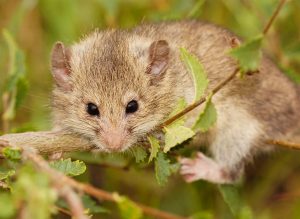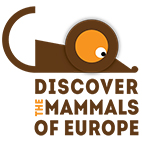 The presence of the rarest mammal species of Europe – the Roach’s Mouse-tailed Dormouse (Myomimus roachi) is confirmed! He is here! It was already thought that this species has disappeared, because his presence was not confirmed for a long time. A species is considered extinct if for 100 years it is not confirmed. But Nedko Nedyalkov and Georgi Popgeorgiev succeeded to lift the mist around this extremely unknown species and to confirm its presence. Now actions can be realised to ensure the proper management of the habitats were it occurs and the sustainable protection of that species can start.
The presence of the rarest mammal species of Europe – the Roach’s Mouse-tailed Dormouse (Myomimus roachi) is confirmed! He is here! It was already thought that this species has disappeared, because his presence was not confirmed for a long time. A species is considered extinct if for 100 years it is not confirmed. But Nedko Nedyalkov and Georgi Popgeorgiev succeeded to lift the mist around this extremely unknown species and to confirm its presence. Now actions can be realised to ensure the proper management of the habitats were it occurs and the sustainable protection of that species can start.
Nedko Nedyalkov from the National Museum for Natural History, is working for many years on this species, during which he has collected important new data on its ecology. Information onthe habitats preferences, the diurnal activity and diet. This information proved to be of crucial importance to catch an individual finally. It is impressive that he didn’t gave up for so many years and kept on working and studying this absolutely mysterious species.
It is interesting to mention, that the Roach’s Mouse-tailed Dormouse was caught with the set of Longworth livetraps that were donated by the Dutch Mammal Society (DMS) to the National Museum for Natural History in Sofia. That happened 15 years ago, when the Field Working Group of the DMS, came to the Eastern Rhodopes for their annual Summer Mammal Study Camp. These camps normally conduct a diversity of mammal surveys at different places of biodiversity importance in Europe. They are always organised with local organisations working on nature research and conservation.
In 2002 the camp took place in the Eastern Rhodopes. The group of Dutch mammal enthusiasts have donated equipment to the local partners: computers and literature to the Nature Information and Conservation Centre Eastern Rhodopes of the Bulgarian Society for Protection of Birds and a set of 50 Longworth livetraps to the National Museum of Natural History, Sofia.
Nedko is still taking care of these traps and uses them in his surveys. It is very rewarding to see that 15 years later these traps are still functioning and used to learn more about the mammal fauna of Europe.
Targeted building of capacities in biodiversity conservation is crucial for saving the biodiversity of Europe! You can help realising this dream by donating a gift to give Nedko the opportumity to share his experiences with fellow dormouse researchers: Help Bulgarian dormouse researcher.

Habitat of Roach’s mouse-tailed dormouse (Myomimus roachi) in Bulgaria (Photo: Georgi Popgeorgiev).






